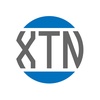The landscape of global healthcare is a realm of constant evolution, shaped by technological advancements, regulatory shifts, and patient needs. Amidst these dynamics, medical billing software stands as a cornerstone in healthcare management, pivotal in streamlining administrative tasks, optimizing revenue cycles, and enhancing patient experiences. As the sector confronts unprecedented challenges, adapting these systems is no longer an option but a necessity.
Understanding Medical Billing Software in the Global Context
Medical billing software automates the arduous process of invoicing patients, processing health insurance claims, and managing payment collections. In the international arena, these systems must transcend diverse healthcare policies, varied insurance models, and multifaceted legal regulations, making standardization a complex feat. From handling different healthcare coverage types in the U.S. to navigating public healthcare systems in the U.K. or private insurances in other regions, the software must be versatile, robust, and adaptive.
Technological Integration and Interoperability
With the digitization of healthcare records and the rise of telemedicine, medical billing systems are compelled to integrate with electronic health records (EHRs), telehealth platforms, and other digital health tools. This integration is crucial for accurate, real-time data exchange, minimizing billing errors and facilitating coordinated, patient-centered care. Interoperability, especially across borders, necessitates compliance with various data privacy regulations, such as GDPR in Europe and HIPAA in the U.S., demanding an intricate balance between connectivity and security.
Regulatory Compliance and Geographic Variances
One of the foremost challenges is maneuvering through the labyrinth of healthcare regulations that vary from one region to another. These legal frameworks dictate the coding standards, claim submission processes, and patient privacy rules that the software must accommodate. For instance, while the U.S. uses ICD-10 coding for diagnosis and CPT for procedures, other countries might employ different classification systems. The software must be finely tuned to adapt to these nuances without compromising efficiency or accuracy.
The AI Revolution in Medical Billing
Artificial Intelligence (AI) is spearheading a paradigm shift in global healthcare, and medical billing is at the forefront of this transformation. AI’s predictive analytics can forecast payment trends, automate coding, and identify billing anomalies, thereby reducing administrative burdens and mitigating compliance risks. However, the integration of AI brings about its own challenges, including the need for vast data training, ethical considerations, and international standards on AI reliability and safety in healthcare.
Security Challenges and Solutions
In an era where cyber threats loom large, securing sensitive patient data becomes paramount. Medical billing software is a treasure trove of personal health information, financial data, and insurance details, making it a prime target for cyber-attacks. Building resilient, secure software involves sophisticated encryption, regular security audits, and real-time monitoring systems. Additionally, as healthcare providers globally adopt cloud-based billing solutions for their versatility and convenience, emphasis on cloud security and data protection is intensifying.
The Road to Standardization and Best Practices
Amidst the diverse challenges, the pursuit of standardization in global medical billing is gathering momentum. Multi-national initiatives and collaborations are underway to establish universal coding guidelines, uniform claim processing protocols, and standardized data security measures. Embracing best practices such as transparent billing, patient engagement tools, and regular staff training in international regulations can significantly optimize the billing process and prepare healthcare organizations for global scalability.
Case Studies: Successes and Lessons Learned
Real-world examples highlight the ingenuity and adaptability of medical billing solutions across various healthcare systems. Case studies from countries adopting universal health coverage, like Canada or Japan, provide insights into handling bulk billing and government claims. Conversely, models from countries with fragmented healthcare systems present lessons in managing diverse payer structures and complex reimbursement scenarios. These narratives are instrumental in driving innovation and guiding future implementations.
Conclusion
In the complex ecosystem of global healthcare, companies like Holon Solutions are carving out a niche by refocusing on the most critical component: the human element. As the healthcare sector wrestles with the challenges highlighted, including interoperability, regulatory hurdles, and the integration of advanced technologies like AI, Holon's unique philosophy and approach offer a refreshing pivot back to human-centric service.
Inspired by the concept of a "holon" — representing unity in singularity and as part of a larger system — Holon Solutions embodies this dual existence. It stands as an independent beacon of innovation while also acknowledging its role within the broader healthcare network. By fostering a space that seamlessly integrates patient data into everyday clinical workflows, Holon is not just streamlining administrative processes; it is reclaiming valuable time for healthcare professionals. This focus is a direct response to the prevalent issue of professional burnout, reflecting a deep understanding of and empathy for healthcare providers' challenges.
What truly sets Holon apart is its unwavering commitment to easing the administrative load that so often overshadows patient care. The company's application of smart technology and intuitive design in creating customized tools and services underscores a deep commitment to both operational efficiency and the enrichment of human interaction within healthcare settings. This dual focus is evident in the Holon Community — an initiative that champions the optimized delivery of patient data, facilitating more efficient and empathetic care provision.
The spirit of innovation is deeply ingrained in Holon's identity, particularly within its Innovation Lab. Within this creative hub, the fusion of technological advancement with human-focused design is not just encouraged but expected. The team thrives on bold exploration guided by foundational principles that advocate for simplicity, empathy, agility, especially in a Software as a Service (SaaS) framework, and above all, the humanization of every interaction. This culture of innovative thinking is what propels Holon forward in its mission to introduce game-changing solutions to the healthcare market.
In essence, Holon Solutions is more than a healthcare technology company; it is a visionary crusader taking on the quagmire of administrative inefficiencies, professional exhaustion, and impersonal interactions that have long plagued the healthcare landscape. By placing a premium on human connections, from the empathy in understanding its clients' struggles to the prioritization of patient-centered care, Holon is redefining success in healthcare technology. It measures triumph not just in terms of business profitability but also in the improved quality of every human interaction it facilitates.
As the world of healthcare continues to evolve and adapt to global challenges, the need for solutions like those offered by Holon becomes increasingly imperative. Holon’s commitment to innovating while maintaining a human touch serves as a reminder of what's truly important — the well-being of both the care providers and the individuals they serve. In this commitment lies the promise of a healthcare system that marries efficiency with empathy, fundamentally transforming the global healthcare experience.


No comments yet